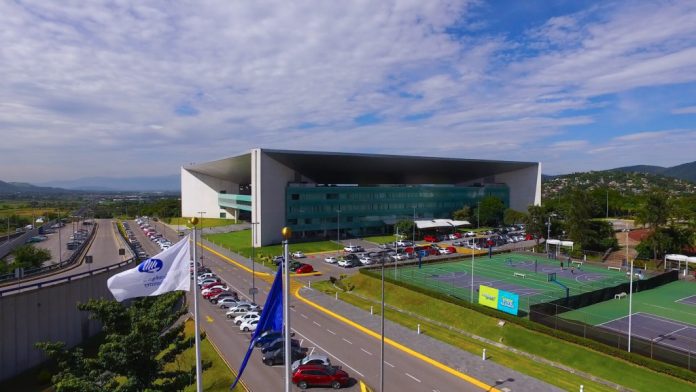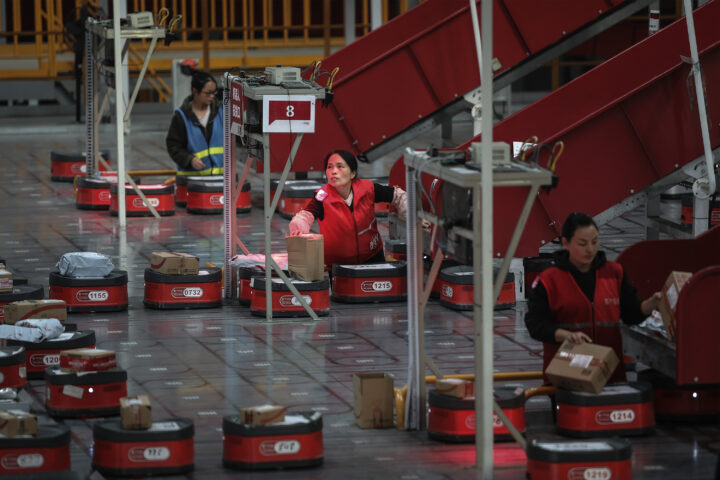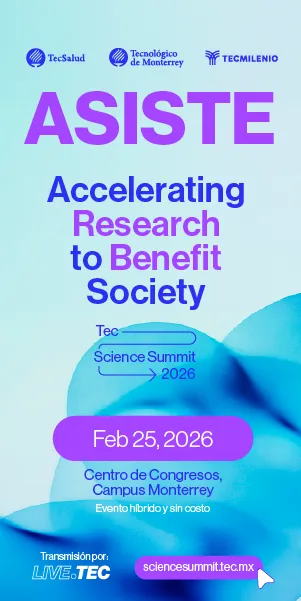In Mexico City, traffic is getting worse and it does not seem like it will slow down anytime soon, as the number of motorized vehicles increases every year. Electric bicycles could be a sustainable solution, especially if they are produced locally.
In 2022, there were more than 6 million automobiles in this metropolis, with one car, motorcycle, van, or truck for every 1.4 citizens, causing many problems, including increased air pollution.
As a result, citizens have been encouraged to use non-motorized vehicles, such as bicycles. However, although they are a green alternative, when it comes to traveling long distances or on steep terrain, they may not be the best option. This is where electric bicycles come in.
“Our business is converting these vehicles into electric ones at a low cost and with technology that provides data to optimize their use,” says José Huertas, research professor at the Department of Mechanical Engineering, from the School of Engineering and Sciences, Monterrey Campus, from Tec de Monterrey.
Huertas and Jorge Huerta, Dean of the Center for Research in Applied Science and Advanced Technology (CICATA) at the National Polytechnic Institute (IPN), are leading a project –called WheelTech– focused on creating a wheel with an electric motor that can be easily installed on a traditional bicycle to transform it into an electric one.
The wheel integrates an electric motor and controller, batteries, sensors and a GPS into a single unit. Although it sounds simple, the wheel and controller have complex know-how that has taken years of scientific research to develop. So far, its technological maturity level is TRL 5.
“We are working on a test bench that will allow us to observe how the controller and wheel behave, in order to make improvements and adaptations, so that it can reach TRL 7,” says Huerta.
Their Goals: to Reduce Traffic and Air Pollution
In 2024, Mexico City ranked first in the world in terms of traffic congestion, with 152 hours lost per year during rush hour. This is not only a cause of stress for citizenS, but it also means an increase in air pollution.
More than 70% of it comes from vehicles in circulation, which emit greenhouse gases, such as CO2, because they run on fossil fuels. “That pollution is what’s giving me the flu right now,” says Huertas.
In general, electric motors tend to pollute less and emit fewer greenhouse gases. Thus, their electric wheel helps citizens’ mobility without increasing CO2 emissions.
The electric wheel developed by the team, led by both researchers, is not only a simple and efficient way to transform a traditional bicycle into an electric one, but its components also allow the person who installs it to make travel decisions based on real-time performance data.
“This whole process involves a concept called telemetry, in which you must add sufficient sensors to the different parts,” explains Huerta. This way, the wheel can measure battery currents, as well as speed, acceleration, incline, and position during the journey.
Down the road, they seek to expand their technology to convert small distribution vehicles, such as motocars, into three-wheeled vehicles with a small electric engine.
“At first, I disdained these vehicles, but later I realized that, in terms of energy, they are very suitable due to their low weight and load capacity,” says Huertas.
For the researchers, their product is not only an alternative to help reduce traffic and air pollution, but also a way to democratize green technologies in the country.
Democratizing Green Technologies
According to the researchers, green technologies, such as electric motors, tend to be expensive because they are almost always imported from other countries, like China or the United States, which is why they sought to develop the wheel locally.
“It’s often happened in Mexico that we feel like we’re already behind in developing certain technologies, so we say, ‘What’s the point,’” says Huerta. “I think that’s something we shouldn’t allow.”
For this reason, this project was developed exclusively in Mexico, which means that in the future it will be low-cost and accessible to anyone.
The wheel was not only conceived as a technologically competitive product, but it is also adapted to the specific needs of environments like Mexico City.
“A Chinese product doesn’t receive the attention we need here; the roads and the way people assimilate technology are different there,” says Huerta. Making it in Mexico also makes maintenance easier.
This desire to contribute locally is also evident in the nature of the project, which was born from an initiative to combine research conducted at private universities, such as Tec, with that conducted at public universities, such as IPN.
In the future, the researchers hope to further advance the project’s technological maturity until it can be scaled nationally. They also aim to install solar panels to power the wheel’s batteries, with the goal of making it more autonomous and keeping it lightweight, without sacrificing sustainability.
“It turns out that we are dying in part due to pollution and exposure to vehicle pollutants,” says Huertas. “As human beings, we are focusing on finding solutions, and this is part of it.”
Were you interested in this story? Would you like to publish it? Contact our content editor to learn more: marianaleonm@tec.mx
















